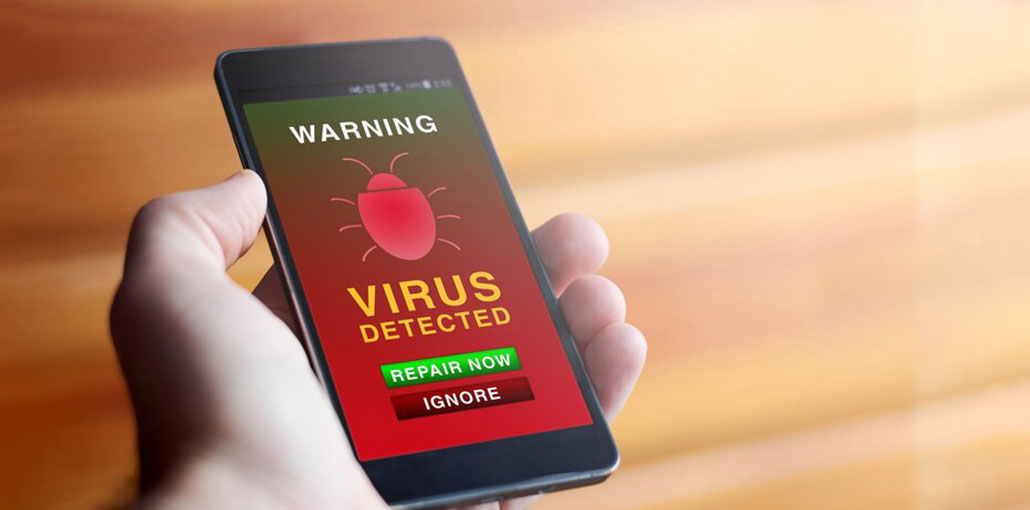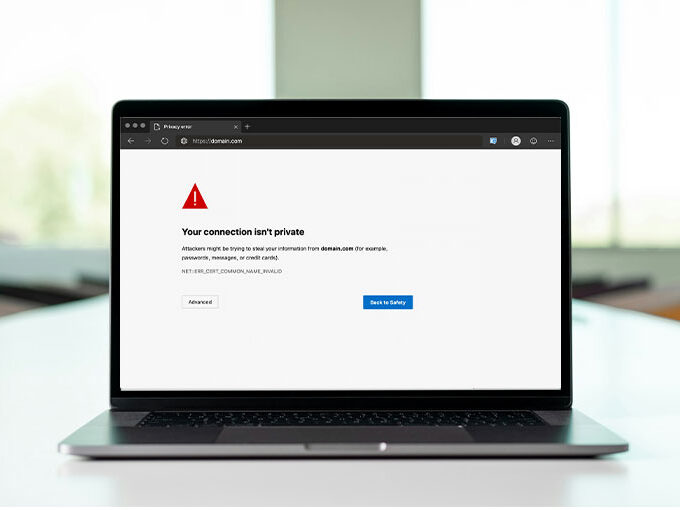iPhones are famous for their robust security, yet many people still ask: Can iPhones get viruses? Although Apple’s iOS is built to protect users, no device is completely immune to security risks.
The word on the street is that iPhones do not get viruses. In most cases, it’s true. However, even Apple’s fortress-like protection is susceptible to cracking under stress. A bad application or concealed flaw can iPhone to get viruses. Inefficient performance, security breach, or data theft are only some of the problems that could arise.
If you recognize the warning signs in time and get rid of the virus as quickly as possible, it will help you avoid more problems later on. Let’s look at the steps to identify and remove the threats that can keep your iPhone free of viruses.
Can iPhones Get Viruses?
Yes, iPhones can get viruses, in rare cases, but it’s not a common occurrence. Many people believe iPhones are immune to all viruses to viruses they’re not as susceptible as other devices, such as Androids.
Apple’s high security and rigorous oversight ensure iPhones do not fall prey to virus-related infections due to Apple’s strict control over all aspects of the iOS ecosystem. Each app on App Store that’s made available must go through an intensive verification process, including signing code to ensure authenticity from an authentic developer. Otherwise, your iPhone may block it and notify Apple about it immediately.
Sandboxing is a further layer of security by enclosing every app in its own virtual sandbox. This makes it impossible for rogue applications or viruses to be spread, altered with other apps, or even infect your system. Additionally, with each software update, Apple rolls out security patches to guard against any of the newest or hidden vulnerabilities.
But even with Apple acting like a professional, viruses can still infiltrate your iPhone in certain cases.
How do iPhones Get Viruses?
To effectively protect your device, it’s crucial to understand its possible vulnerabilities. Let’s consider some of the key ways viruses can infect your iPhone.
Jailbreaking
Jailbreaking allows users to bypass Apple’s restrictive software to gain access to files, custom applications, and system tweaks that would otherwise not be approved through the App Store policies. But be warned, jailbreaking will remove many important security features like application sandboxing that protect against viruses and malware threats that would normally make their iPhone less susceptible.
Third-party malware
In contrast to the official App Store applications, which are subject to strict screening, apps that are not from official sources may be infected with a virus. When installed via sideloading or jailbreaking, the apps can access your information, corrupt files, or monitor your phone’s communications when they’re installed and downloaded to your iPhone.
Also read: Why do Scammers Use Smartphones to Access Your Data? | Ways to Protect Yourself
Malicious iMessages
iMessages could contain malware in attachments such as videos, images, or even hyperlinks. These frauds through text messages usually induce you to believe that you have to act swiftly to resolve a security flaw or take advantage of the prize. After you click or open this attachment, the virus inside can infect the iPhone.
Unsecured networks
Your iPhone could become vulnerable to attacks exploiting network-level weaknesses when connected to insecure public Wi-Fi networks. This leads to potential attacks by intruders with malicious intent who monitor unencrypted data or gain access to download viruses on the device. They may also exploit iOS vulnerabilities to install malware. Other hackers could create false Wi-Fi hotspots to make you download malware-laden applications.
Harmful websites
Visit a malicious website, and the result could be an infection with a virus. Some websites exploit weaknesses in open-source software that runs the Safari browser on iPhones to download an infection with harmful code into it. Some employ phishing methods, including false warnings that their iPhone has been infected, to lure users into downloading malware.
How Do I Know If My iPhone Has a Virus?
Can iPhones get viruses? It’s so a rare condition, it can be a surprise to users when they do happen to strike. It’s the reason it’s so important to be aware of the warning signs before things go out of control. Here are some warning signs that indicate a virus on an iPhone.
- Slow performance: unexplained lags, constant crashes, and constant freezing/rebooting could be an indication that your phone is compromised
- Crashes in apps: if core apps like Settings, Phone, Notes, or Safari often crash, it could be a sign that a virus or a system issue is the reason.
- Persistent pop-up advertisements: If you notice more frequent and aggressive advertisements, pop-ups, or redirect loops even when your browser is closed, then this could be an indicator that malware has taken hold in your iPhone.
- Rapid battery drain: Draining the battery may be the result of a power-intensive virus that is running in the background
- Overheating: The iPhone you own becomes abnormally hot, even when it is not under any heavy usage. It could be the result of a virus that could be causing stress to the processor, and the device is overheating.
- Unusually high data use: a sudden and unexplainable increase in data usage may be due to a virus that is sending out large amounts of data, or from performing illegal tasks such as communicating via remote servers.
- Unsuspicious downloads: If you see unknown apps or downloads you didn’t recall installing, the virus may have made its way into your iPhone.
Also read: How to Block Websites on iPhone in 2025 (No Apps Needed)
How to Remove Virus from iPhone
Once you know how viruses could infect your iPhone, let’s discuss how to eliminate malware from your phone and stop the device from becoming further infected.
Delete Suspicious Apps
Check the apps installed on your smartphone and see which ones are suspicious. Do you remember downloading it? Are You Using It Enough to be concerned with It? In most instances, simply uninstalling one app can suffice to remove iPhone viruses. After you have installed an application that installs malicious files and code on the phone. The app is deleted after which it has removed all associated files and malware contained within it.
Clear Website Data and Browsing History
It’s crucial to know how to delete data from websites could save your life should the iPhone virus still reside there. Your browsing history may provide you with opportunities to accidentally return to a malicious website. Therefore, it’s best to remove every often. The virus can then re-inject itself into your device and bring you back to where you started.
Restart Your iPhone
Restarting your phone may still provide the means of ridding active malware and viruses. But switching off the phone won’t be an effective long-term solution, as the majority of viruses will restart their attack when you restart it. However, it could give you the chance to restore your mobile backup.
Restore a Previous Backup
Apple provides users with limited iCloud storage to protect and back up their devices, offering the ideal option should an iPhone get a virus. However, if your device has been exposed to malware over an extended period of time and its backups could contain viruses stored therein, or your device has been acting peculiarly for an extended period, skipping this step is usually acceptable and moving on to step two immediately.
Tips: How to protect your iPhone from viruses
- Keep iOS updated to the latest version
- Download apps only from the official App Store
- Avoid jailbreaking your iPhone
- Be cautious with links, emails, and texts from unknown sources
- Use strong passwords and enable two-factor authentication
- Install a trusted security app or VPN for extra protection
- Regularly back up your iPhone to secure your data
Final takeaway
Ultimately, the idea that iPhones are completely immune is more myth than fact. Many wonder, can iPhones get viruses? While Apple’s strong security makes it safer than most devices, viruses can still appear on rare occasions. That’s why it’s important to recognize infection signs early and remove any threats immediately.










Leave a comment